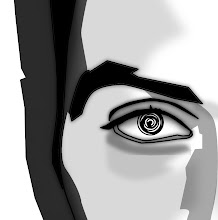
I had the privilege of attending IFP Filmmaker Week, winning tickets courtesy of the amazing independent crowd-sourcing fundraiser company IndieGoGo via Twitter (thank you social media), and I must say there were some interesting thoughts worth sharing on the current state of independent film culture. For those unfamiliar with the event or the organization, IFP is a nonprofit company that has evolved into the largest organization of independent filmmakers, and is also the premier advocate for them. IFP film week gathers independent filmmakers, distributors, producer, critics, lawyers and anyone from the gamut of the indie film-making world, putting them in panels to discuss a wide variety of topics. I did my best to live tweet the panels I thought were interesting, but due to lack of wifi and bad cellular reception I was only able to quote a few of the speakers. I'll do my best to recap some of the important points that kept coming up.
Building your audience is key! That, above all, was the strongest and clearest message to the independent community. "The beauty of the internet is it's limitless bounds, we can do anything with it." said Gary Hustwit, director of Helvetica, talking about his internet following and how the number of people on his email list has helped foster his films. "Facebook, Twitter it's all part of making the film, it doesn't stop after the film is done, it's what allows me to make the next film. And don't forget what we are making has value to websites, they're looking for cool content" talking about the trailer for his new documentary "Objectified" being featured on Gizmodo.
"You have to find established audiences, tap into them and bring them into your domain" said Bladimiar Norman of 42 west, a full-service public-relations firm for your film. "Drilling your content into crowds that are relevant to your film will have the biggest impact." Talking at the same panel, Crowd Sourcing: Building Fans, Bloggers, & Press Allies, IndieGoGo founder Slava Rubin told the crowd of up and coming filmmakers, "The ones who are successful are the ones who take action and take advantage of the tools available them" referring perhaps to the many easy tools sites like Indiegogo offer, including Twitter/Facebook integration, setting up screenings and handling crowd sourced funds.
One of the best panels I attended was "The Times, They Are A-Changin" with Ted Hope, Christine Vachon, Lance Weiler and Kenneth Woo, where the main focus was again the power of audience building and the benefits engaging your audience can reap. "It's important to build your audience before making your first feature, you need to think about it as part of preproduction" Ted Hope talking about the power of social media and twitter, and how social networks had propelled his next film "Super" with Rainn Wilson, Ellen Page and directed by James Gunn based on their collective number of followers on Twitter (Ted has 2 fantastic blogs, Truly Free Film and Let's Make Better Films that are must reads for all filmmakers). But Lance Weiler, creator of the workbook project (an amazing resource for filmmakers), hit home a big problem plaguing the concept of audience building, fractured audiences, "Audiences are becoming so fractured nowadays that it's hard to tap into them. How can we take a filmmaker and their audience and be able to share them with another?"
Personally I think this is one, if not the main problems facing the current independent film movement. We have tools and resources on how to make films, but we do not have a central focus for our audiences to tap into. We need to start thinking about ways of actively connecting our networks to promote the actual consumption of our films, as opposed to just teaching others how to make them.
"The Internet had changed everything, including independent film. It's never been easier to make a film but never been harder to build an audience." said Mark Lipsky, president of Gigantic Digital Cinema, a company committed to making quality, first-run independent films available to everyone, everywhere, anytime. "One of the biggest problems with Independent Films is the label "independent film" wad co-opted by the studios. We need to win back that label." he said, comparing how "There Will Be Blood" is labeled 'indie' by the media. Orly Ravid of New American Vision, has an ambitious new project The Film Collaborative to fix the problem. When it launches, it will be the first non-profit, full-service provider dedicated to the distribution of independent film. It will offer a full range of affordable distribution, educational, and marketing services to independent/non-commercial filmmakers looking to reach out to traditionally undeserved audiences, thus enriching the lives of filmmakers, audiences, and communities alike. This is a step in the right direction.
Overall, IFP Film week's panels provides independent filmmakers an invaluable tool of starting dialogue about our constantly evolving independent film culture. It's our job as filmmakers to engage our audiences in that very dialogue, but in a creative way. I think the most valuable nugget of information came from a young filmmaker, Asiel Norton director of the film Redland, who earnestly said, "The way I look at the web and social media is as another creative tool to create art. It's a tool to extend and expand the life around your film, but at the end of the day, the most important thing is to make a good movie"




No comments:
Post a Comment